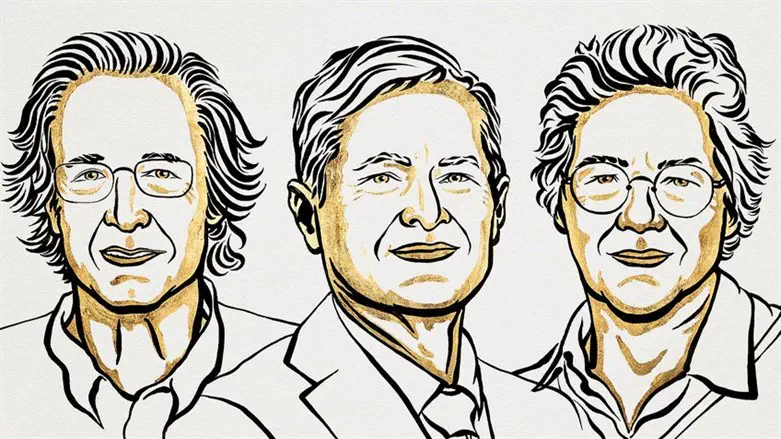
The Nobel Prize in Physics will be awarded this year to three researchers who contributed to the development of methods for producing extremely short flashes of light, for a period of time estimated at billionths of a billionth of a second.
The prize will be shared equally between Pierre Agostini from Ohio University in the United States, Ferenc Krausz from the Max Planck Institute for Physics in Germany and Anne L'Huillier from Lund University in Sweden.
On Monday, the winners of the Nobel Prize for Medicine was announced to be Jewish scientist Drew Weissman and the Hungarian scientist Katalin Karikó for their contribution to the mRNA research that served as the basis for the development of the COVID-19 vaccines.
The committee's reasoning states that the discovery of the two scientists was "critical" to the development of the vaccines that were distributed throughout the world in 2020.
"Through their groundbreaking findings, they fundamentally changed the way the body communicates with our immune system," they added.
Drew Weissman is an immunologist immunologist who met his fellow scientist Katalin Karikó in a photo shop in 1997, where they shared their frustration with the lack of funding for RNA research on brain disease and stroke.
During the year 2005 they published a groundbreaking study in the field that used synthetic nucleosides that prevented the damage to the body as it had been until then.
The breakthrough laid the foundations for the development of the COVID-19 vaccine after the outbreak of the epidemic 3 years ago.
On Wednesday the winners of the Nobel Prize in chemistry will be announced, on Thursday the winner in the field of literature will be announced, and on Friday the winner of the Nobel Peace Prize will be announced.

